The Big Fat Brexit*
Adelina Marini, April 26, 2017
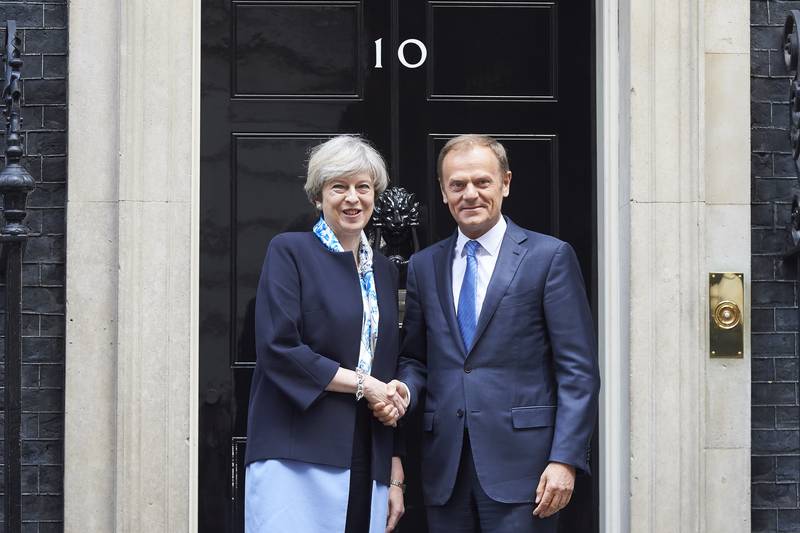 On the eve of its 60th anniversary the European Union is no longer just enlarging, but contracting as well. For the first time (excluding the special case of Greenland) in the history of the Union a member state takes the road not taken towards the exit. Who would have thought that when the just elected leader of the European Commission Jean-Claude Juncker stated in 2014 that by the end of his term there would not be a new enlargement of the Union, there would actually be a contraction. On March 29, Great Britain filed the official notice for exiting the Union and according to the European Treaties (the now famous Article 50) it should cease to be a member two years later. This will happen on March 29, 2019 – the year when the term of Mr Juncker's Commission expires and there will be European Parliament elections.
On the eve of its 60th anniversary the European Union is no longer just enlarging, but contracting as well. For the first time (excluding the special case of Greenland) in the history of the Union a member state takes the road not taken towards the exit. Who would have thought that when the just elected leader of the European Commission Jean-Claude Juncker stated in 2014 that by the end of his term there would not be a new enlargement of the Union, there would actually be a contraction. On March 29, Great Britain filed the official notice for exiting the Union and according to the European Treaties (the now famous Article 50) it should cease to be a member two years later. This will happen on March 29, 2019 – the year when the term of Mr Juncker's Commission expires and there will be European Parliament elections.
Great Britain is the least integrated member state, but its exit will be a very indicative example of exactly what the EU is and how intertwined it is. Until now, the EU has accumulated decades of experience in acceding new members, but has no experience of anyone leaving. The complexity stems from the fact that while the exit negotiations are under way, Britain must start replacing European legislation with its own, and also start building its future, which looks like it is going to be the most difficult part of the task, as the EU has already declared its strong intention not only not to do the exercise easy for the United Kingdom, but also to complicate it as much as possible, in an attempt to discourage all potential future aspirations to leave.
Theresa May in the rabbit Brexit
Ever since the notorious European speech of David Cameron, Britain has been fully obsessed by its relations with the EU. His speech took place in January 2013, but preparations for it began much earlier. All the media and political factors in the country were busy preparing for the European referendum of June 2016, and now with the preparations for the country's exit after just over half of British voters chose to break with the EU. To top it all off, British Prime Minister Theresa May has decided to call snap parliamentary elections on June 8th.
Over the next two years, British society will continue to be fully absorbed by the exit. It is likely that the topic will continue to make the headlines after that as well, as the future relationship between London and Brussels may not have been negotiated. Now that Article 50 is triggered, there is no going back and the medicine will have to be taken in full. And whether Great Britain will get bigger or shrink it's an entirely British problem. However, the UK leaving will cost the EU too much time, energy and resources as well. The road is unlikely to be entirely smooth for the 27, who are currently holding up and do not succumb to British provocations. How long will this unity stand, given that intra-union tensions are constantly growing and to what extent will the Rome agreement to move towards a multi-speed Europe prove to be a good pressure releasing valve, is a question that will stand in the background with the potential to turn into an elephant in the room.
From the documents and conversations exchanged so far, it is clear that the most neuralgic points in the negotiations will be to resolve the status of European and respectively British citizens after the exit, which is identified as the number one priority in the EU negotiating position; arranging financial relationships; some bilateral issues; financial services; when to begin the negotiations on the post-divorce settlement agreement.
Theresa May's chess pieces
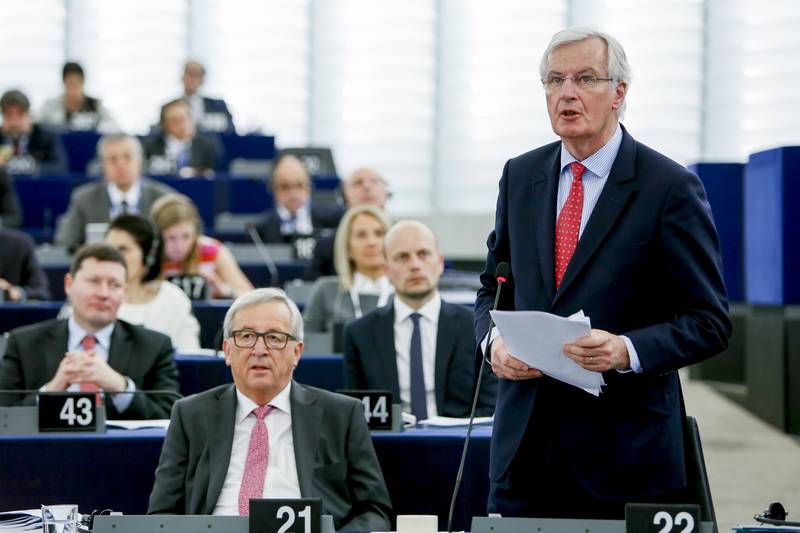 To the British government, the priorities are to hold parallel negotiations - on the way out and on the settlement of the post-divorce relations; to settle financial relationships on the basis of compromises on other points; settlement of the status of European citizens in the UK; to link security and defence cooperation with concessions in other sectors; London maintaining its privileged position in the single market for financial services. Parallel to the exit negotiations, Britain will also replace European legislation with its own. More than half of UK departments are currently engaged in this process. According to the Brexit White Paper, published in February, the UK will maintain European legislation by the time it leaves, then it will consider what elements of it to be retained, which are to be amended and which are to be completely abolished after the exit.
To the British government, the priorities are to hold parallel negotiations - on the way out and on the settlement of the post-divorce relations; to settle financial relationships on the basis of compromises on other points; settlement of the status of European citizens in the UK; to link security and defence cooperation with concessions in other sectors; London maintaining its privileged position in the single market for financial services. Parallel to the exit negotiations, Britain will also replace European legislation with its own. More than half of UK departments are currently engaged in this process. According to the Brexit White Paper, published in February, the UK will maintain European legislation by the time it leaves, then it will consider what elements of it to be retained, which are to be amended and which are to be completely abolished after the exit.
Regarding the financial commitments that the UK has to the EU, London places its 2016 Autumn Statement as a starting point. The country is prepared to fulfil its commitments to all projects signed so far on all European structural and investment funds, even if it means these projects will continue after the UK's exit from the EU, including the commitments under the Common Agricultural Policy. The latter is particularly important given that Britain has always been the biggest enemy of this community policy. The British Treasury is also willing to fund projects signed after 2016 Autumn Statement, provided they bring a strong return and if they are consistent with domestic strategic priorities. Applications made directly to the European Commission by British organisations, institutions, universities, and businesses will also be funded.
Unofficially, London is not particularly happy to be offered a bill to pay, but the attitude is that when negotiating with the EU it is always about money. This means that British negotiators will seek every opportunity to "redeem" their interests.
The status of European citizens in the UK and the British ones in the EU is another point that is facing tense negotiations. London's initial desire was to resolve this issue before the start of formal talks, but the EU firmly refused. The Brexit White Paper says that this has happened despite many member states expressing readiness for such a method. The approach on this topic will be based on reciprocity.
One of the important issues that will hang as Damocles sword over the negotiations for the next two years while Britain remains a full member of the EU is whether London will resort to blocking European legislation in order to gain concessions in the exit negotiations. A British diplomat, whom euinside talked to, did not entirely dismiss such a possibility, but at this stage the UK intends to continue acting as it has so far, and this is not particularly encouraging. London's official stance is that it will not interfere with EU development, but it will block any legislation that it believes may be to the detriment of the country after membership is terminated. The guidelines currently drafted by the EU and expected to be approved by the European Council on 29 April explicitly state that "negotiations with the United Kingdom will be kept separate from ongoing Union business, and shall not interfere with its progress."
The EU – all for one and one for all
At this stage the Union demonstrates considerable unity. All 27 Member States agree that the order of the negotiations should first be to negotiate the departure of the UK with all the rights and obligations that arise from it and only then to move to the post-exit relationship. Article 50, however, allows for negotiations to begin on the framework of future relations and therefore it is said in the draft text of the negotiating guidelines to be approved by the leaders of the member states at their extraordinary summit on 29 April that "preliminary and preparatory discussions" can begin when "sufficient progress" is achieved in the first phase of the negotiations. According to European Council President Donald Tusk (Poland, EPP), this can happen in September if there is no delay. He said this before Theresa May surprisingly announced snap elections. European diplomats expect that the elections will lead to a delay of the start of negotiations.
The number one priority to the EU is resolving the issue of the status of European citizens. In this sense, the EU looks much better prepared for the negotiations than the UK. In the document prepared for Saturday, the most important priorities for the Union are addressed to the smallest detail. The EU wants the definition of the scope of the part of the agreement that affects the status of European citizens in the UK and British citizens in the EU to be based on Directive 2004/38, which includes economically active citizens - workers and self-employed - but also inactive people living in the UK before the date of leaving, as well as members of their families. For the EU, it is also important to take into account Regulation 883/2004, which regulates the coordination of social security systems.
The EU will insist and so far the UK is willing to accept that everyone who has lived five years in the UK until the date of leaving can be given permanent residence. A simplification of the documentation required by the British administration is also required. This is currently one of the hottest issues, as dozens of EU citizens have already been forced to fill a 85-page application. In some cases, there has been a refusal to allow permanent residence to people who have lived in Britain for decades, have married British citizens or other cases governed by European law. The draft guidelines state that the UK must issue residence permits through a "simple and swift" procedure that is either free of charge or the fee does not exceed what local citizens pay for the issuing of such documents.
The EU also calls for all rights stemming from the free movement of workers in the EU, which means access to the labour market, business creation, social and tax benefits, training, housing, collective rights, to continue to apply to European citizens after Great Britain's exit. The Kingdom will also be required to continue to recognise diplomas, certificates and other evidence of formal qualifications obtained in any member state before the date of exit.
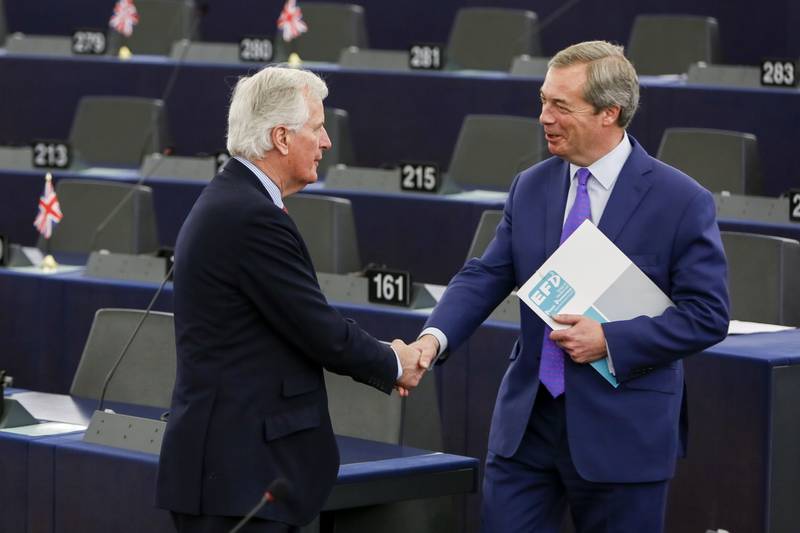
On the financial part, the EU starting point is not the presentation of the British budget in the autumn of 2016, but the date of exit. The Union believes that there should be a single financing agreement covering all of the UK's financial commitments related to its membership in all EU institutions such as the ECB, the EIB, various funds and schemes such as the European Development Fund and the Turkey refugee funding scheme. The EU believes it is right for the UK to bear the costs of the relocation of EU agencies and institutions currently on its territory. The document has not yet presented a specific amount, variations of which have been rotating in the media for months and range from several billion to 60 billion euros. The document speaks of the need to negotiate a commitment calculation mechanism based on the official consolidated annual accounts of the Union.
Great Britain's obligations being based on historical data about the share of its participation before the date of exit is another European negotiating position. The Union will also insist on agreeing on a liability payment mechanism to minimise the consequences for the EU budget of Britain's exit.
Another controversy between the EU and the UK is the negotiation of future trade relations with third countries. According to the EU, European law does not allow the UK to start negotiations on future trade agreements before it exits. This is also discussed in detail in the European Parliament resolution voted on 5 April with 516 votes in favour, 133 against and 50 abstentions. The document refers to Article 4 (3) of the EU Treaty and states that if the UK does not comply, there will be consequences, including its exclusion from trade negotiation procedures. The European Parliament has a key role to play in the negotiations as the exit transaction requires the signature of the EP as well and the institution has already made a request that it is not willing to grant concessions.
To Great Britain there is only one bilateral issue to be resolved in the negotiation process, and that is the border between it and Ireland. According to the EU, however, the negotiations will have to address the cases of Gibraltar and Cyprus. According to the diplomatic source with whom euinside talked, the UK does not exclude the emergence of other bilateral issues, among which it is possible to find topics such as the status of Polish citizens in the UK, huge investments in France, etc. Although the UK is aware that new bilateral issues may arise, it is strongly opposed to them being included in the negotiations. This was also one of the subjects during the debate on the European Parliament resolution in Strasbourg on 5 April.
The text of the resolution, as well as the new guidelines proposed by Donald Tusk, has infuriated the main culprit for the Brexit Nigel Farage (EFDD, Great Britain), who called the EU "mafia". "You think we are a hostage, we are not, we are free to go", he said. Farage is also outraged by the discussions on the UK's financial commitments. Ashley Fox (ECR, Great Britain) in turn expressed his outrage at insisting that Gibraltar be part of the talks. The new leader of the UK Independence Party (UKIP), Paul Nuttall, said it was even offensive that Spain threatened to veto the Brexit if the Gibraltar issue were not resolved.
Spanish MEP Ramón Jáuregui Atondo (Socialists and Democrats) explained that Spain has no intention of fighting over Gibraltar's sovereignty, but has long-standing claims that remain valid and must be negotiated. "But it's quite unacceptable in the 21st century that we have a colony here in Europe and I hope you'd understand the Spanish position", he said. For the British MEP of the Greens and European Free Alliance group Molly Scott the case of Gibraltar is a symbol of Britain's loss of commitment to peace and basic standards of diplomacy.
Although the White Paper on Brexit and other UK exit documents explicitly state that the United Kingdom will negotiate and leave as a solid entity, the debate in the European Parliament has revealed intra-Kingdom tensions. Irish, Welsh and Scottish MEPs were adamant that the interests of their communities need to be adequately accounted for and their administrations should be involved in each phase of the negotiations. "I do not accept that the interests of Wales can be ignored by the UK Government, but that is exactly what is happening, despite the publication of the white paper ‘Securing Wales’ Future'", said Jill Evans (Greens/EFA, Great Britain) .
"Mrs May and Nigel Farage do not speak for Scotland, do not speak for me, and do not speak for 48% of the UK’s population. The UK is not one bloc, much as Mrs May would like it to be; the UK is a complicated set of various interests, all of which are better reflected in this resolution than in anything the UK Government has put forward to date", said Scottish MEP Alyn Smith (Greens / EFA). Martina Anderson of the far left-wing group GUE/NGL (Sinn Fein) turned directly to Ireland Prime Minister Enda Kenny with a call to act to protect the Good Friday Peace Agreement, which ended the over 30-year-long conflict in Northern Ireland. "You [Enda Kenny] must be the voice of the people, north and south", the MEP urged.
Brexit means Brexit
Until the British prime minister officially submitted the exit notice, the subject was dominated by the British perspective. There were threats across the Channel that the UK would do whatever it takes to protect its citizens, even if it meant sacrificing the European migrants. It was also said that Britain would fight to preserve London's status as the financial hub of Europe, even hearing calls for dumping. There was talk of stout determination to leave, even if it meant a hard exit, that is without a deal. But when the EU began discussing its negotiating strategy, the moods on The Island sharply changed, and the positions softened. One of the most curious reactions was the displeasure, coming from the government, of the departure of the European Banking Authority and the European Medicines Agency.
Cold winds blew from Brussels this week regarding financial services as well. There has been a significant change in the draft, which is still being prepared for the summit on Saturday, compared to the original text. As EUobserver reports, the EU intends to exclude financial services from a possible future trade deal with the UK. This one of the commitments Theresa May made in shaping the British position. In order to continue to have access to EU markets, the City has to work according to the Union's regulatory and supervisory standards. Financial services are one of the main priorities for the UK. According to the Global Financial Centres index, 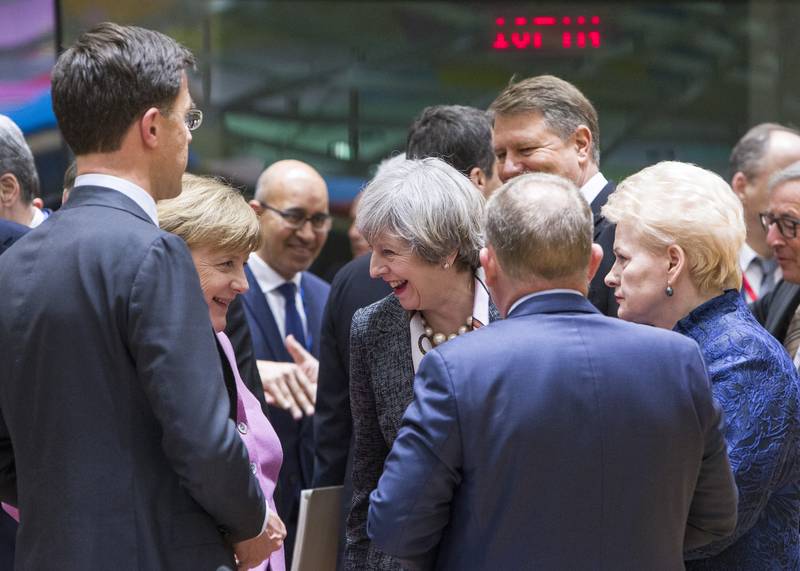 in 2016 London was the world's leading financial centre in front of New York, Singapore, Hong Kong and Tokyo.
in 2016 London was the world's leading financial centre in front of New York, Singapore, Hong Kong and Tokyo.
The reason for his success over everyone else, according to a document of the European Parliament from December, is the dynamic business environment, the predictability of the British legal system, the domination of English as lingua franca. The European subsidiaries of half of the world's financial firms are based in London. Over a million people are engaged in the UK's financial sector, and if you add all the accompanying activities, such as legal, accounting, and consulting services, the number goes up to 2.2 million. The financial sector has a 11% share in British Gross Domestic Product. EU-related financial services revenue in the UK is 23%. The UK share of the financial services market in the EU is 24%.
This makes the sector very attractive to EU financial centres, such as Frankfurt and Paris, who have already declared their desire to take the place of London after Britain leaves the EU. There are tough negotiations coming up and the uncertainty is great. To the EU, the most important thing is for European citizens not to become a bargaining chip. The Union's strategy is to make a pedagogical exercise of the UK negotiations. For this purpose, the Union's chief negotiator, former Commissioner for Internal Market and Services in the second José Manuel Barroso Commission, Michel Barnier, said he would make the negotiations as transparent as possible. "This will not be a secret negotiation but public", he assured MEPs during the Brexit debate on April 5th.
*An analogy with the “My Big Fat Greek Wedding” movie
Translated by Stanimir Stoev
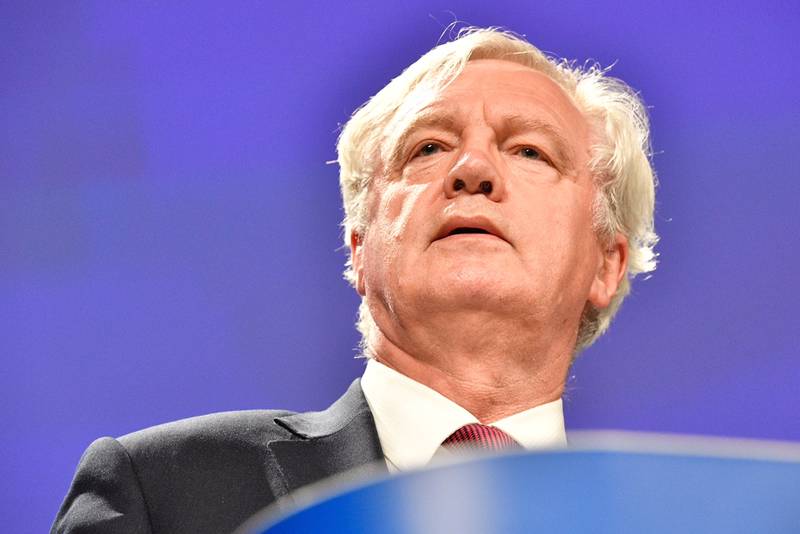 David Davis | © European Commission
David Davis | © European Commission Angela Merkel | © Council of the EU
Angela Merkel | © Council of the EU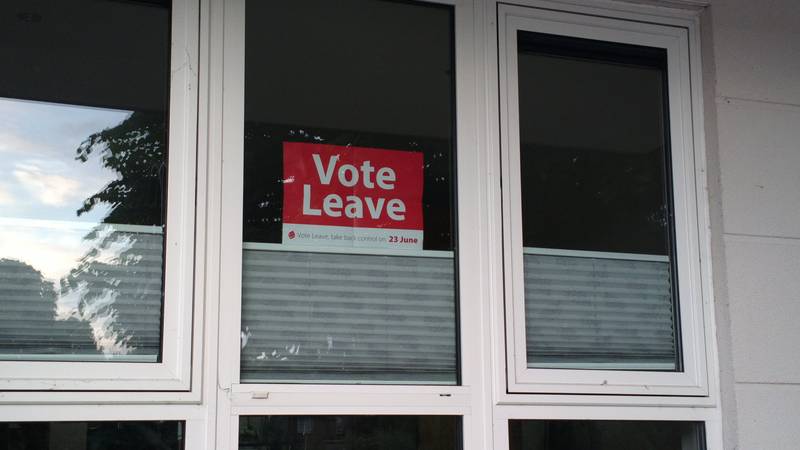 | © euinside
| © euinside